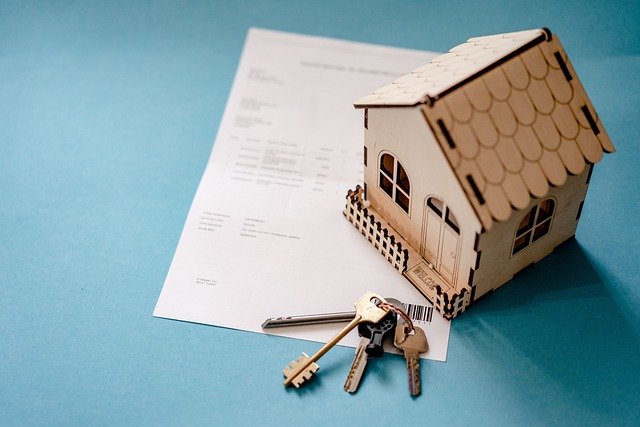Decoding Home Value: Your Essential Guide to Accurate Property Valuation
Understanding the value of your home is crucial whether you’re buying, selling, refinancing, or just curious. With the evolution of technology and real estate markets, obtaining an accurate estimate of your home's worth can be more streamlined than ever. This guide will provide you with insight into determining your property value, factors affecting it, and tools available for quick estimations.

Home Value Unveiled: Understanding the Fundamentals
Home valuation is the process of determining the economic value of a residential property. This assessment considers both tangible and intangible elements that contribute to a property’s worth. The most influential factors include location, which encompasses neighborhood desirability, school districts, and proximity to amenities; property characteristics, such as square footage, lot size, and number of bedrooms and bathrooms; and the home’s condition, including age, maintenance level, and recent renovations. Market conditions also play a significant role, as supply and demand dynamics can dramatically affect property values within a specific timeframe or geographical area.
Price Your Home Right: Methods for Accurate Valuation
Several methodologies exist for determining a property’s value, each with distinct advantages depending on your situation. The Comparative Market Analysis (CMA) examines recently sold properties similar to yours in the same neighborhood, adjusting for differences in features and condition. Professional appraisals provide an unbiased assessment conducted by licensed professionals who follow strict industry standards. The cost approach calculates what it would cost to rebuild your home from scratch, factoring in depreciation and land value. The income approach, primarily used for investment properties, evaluates potential rental income against expenses to determine value. For most homeowners, a combination of these methods offers the most accurate picture.
Master Property Valuation: Key Factors That Influence Worth
Physical characteristics significantly impact property value. Square footage remains a fundamental metric, with larger homes typically commanding higher prices in the same neighborhood. The layout functionality matters too—open floor plans and efficient use of space often attract premium valuations. The number of bedrooms and bathrooms directly correlates with property value, with three-bedroom homes representing the sweet spot in many markets. Lot size and property orientation also factor in, particularly regarding privacy, views, and natural light. Beyond physical attributes, school district quality can affect home values by 10-20%, while proximity to amenities like grocery stores, parks, and public transportation typically boosts property worth.
Use Tech for Home Prices: Digital Tools and Resources
Technology has revolutionized how homeowners can assess their property’s value. Online home value estimators like Zillow’s Zestimator, Redfin’s Estimate, and Realtor.com’s valuation tools use algorithms that analyze public data and recent sales to generate automated valuations. These platforms offer convenience but vary in accuracy depending on the quality of data available for your area. More sophisticated digital tools include interactive CMA platforms that real estate professionals use, allowing for detailed comparisons with recently sold properties. Mobile apps now enable virtual home assessments, while mapping technologies can visualize neighborhood trends and property value patterns across geographical areas.
Demystifying Property Worth: Professional vs. DIY Approaches
When determining your home’s value, both professional and do-it-yourself approaches have merits. Professional appraisers bring expertise, objectivity, and comprehensive market knowledge to their assessments. Real estate agents offer valuable insights through comparative market analyses based on their experience with local properties. Meanwhile, DIY valuation can be effective when homeowners combine online tools with thorough research of neighborhood sales data, property tax assessments, and local market trends. The most reliable approach often combines professional guidance with personal research, especially for major financial decisions like selling or refinancing.
Real-World Pricing Insights: Current Valuation Costs and Options
Understanding the cost of professional valuation services helps homeowners budget appropriately for this important assessment. The table below outlines common property valuation options with their associated costs and benefits:
| Valuation Method | Provider Type | Cost Estimation | Key Benefits |
|---|---|---|---|
| Full Professional Appraisal | Licensed Appraiser | $300-$600 | Most accurate, legally recognized valuation |
| Comparative Market Analysis | Real Estate Agent | $0-$250 (often complimentary) | Market-specific insights, relatively accurate |
| Automated Valuation Model | Online Platforms (Zillow, Redfin) | Free | Instant results, convenient access |
| Broker Price Opinion | Licensed Broker | $125-$350 | Less costly than full appraisal, professional insight |
| Tax Assessment Review | County Assessor | Free (public records) | Official record for tax purposes |
Prices, rates, or cost estimates mentioned in this article are based on the latest available information but may change over time. Independent research is advised before making financial decisions.
Understanding Market Timing and Valuation
Home values fluctuate with market cycles, economic conditions, and seasonal patterns. Generally, spring and early summer months see increased buyer activity in many markets, potentially leading to higher valuations. Winter months, particularly around holidays, often experience slower markets and potentially lower valuations. Economic factors like interest rates, employment levels, and housing inventory also significantly impact property values across markets. Understanding these cycles helps homeowners time their valuation and potential sale to maximize their property’s worth. Regular reassessment is advisable, as property values can change substantially even within a single year during volatile market periods.
Property valuation combines science and art, requiring both objective data analysis and nuanced understanding of market dynamics. By utilizing multiple valuation methods, considering key value-influencing factors, and leveraging both professional expertise and technology tools, homeowners can arrive at an accurate understanding of their property’s worth. This knowledge empowers informed decision-making whether selling, refinancing, or simply tracking your important investment over time.




